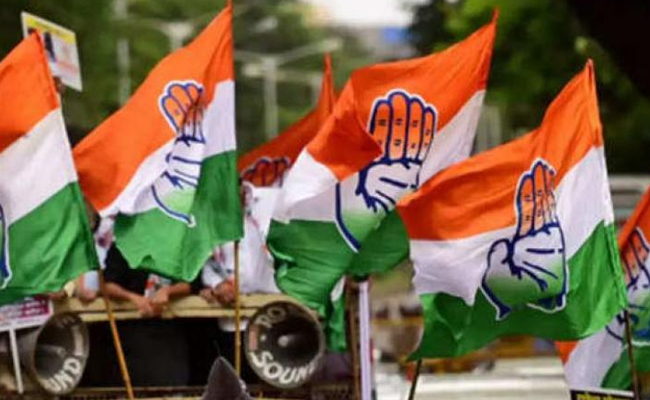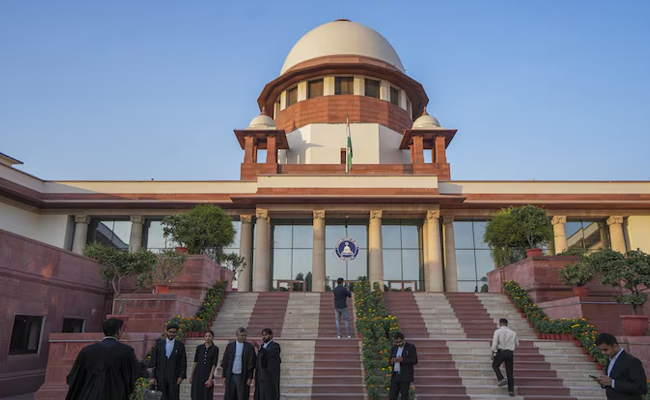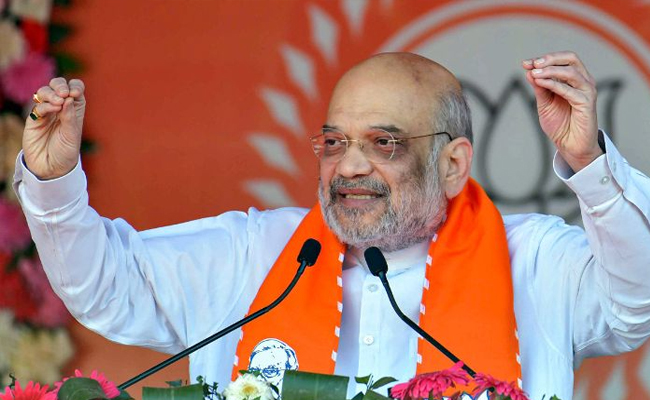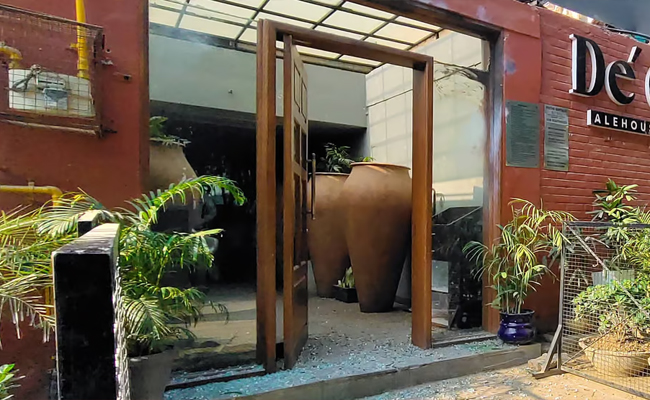New Delhi: Congress leader Jairam Ramesh has criticised the Modi government's 'Make in India' initiative, labelling it a series of unfulfilled promises or 'jumlas' and asserting that it has devolved into a 'Fake in India programme.'
During a statement on 14 October, Ramesh claimed that the objectives set during the programme's launch in 2014 have not been met, criticising the government's economic policies for the poor outcomes.
"Prime Minister Modi launched 'Make in India' in 2014 with much hype and fanfare, outlining four key objectives. However, ten years later, the reality tells a different story," Ramesh posted on X.
Ramesh highlighted the following:
Jumla 1: Will increase industrial growth to 12–14 per cent annually.
Reality: Since 2014, India's manufacturing growth rate has averaged only 5.2 per cent.
Jumla 2: Will create 100 million industrial jobs by 2022.
Reality: The number of manufacturing jobs has decreased, falling from 51.3 million in 2017 to 35.65 million in 2022–23.
Jumla 3: Will raise the manufacturing sector’s share in GDP to 25 per cent by 2022 (later extended to 2025).
Reality: The sector's share in India's Gross Added Value (GAV) has dropped from 18.1 per cent in 2011–12 to 14.3 per cent in 2022–23.
Jumla 4: Position India as the "new factory of the world" by overtaking China.
Reality: Instead of reducing dependence on China, India's imports from China have increased, with the share rising from 11 per cent in 2014 to 15 per cent in recent years.
Ramesh further accused the Modi government of fostering economic instability and unpredictability over the past decade, citing demonetisation as a key example. He argued that growth in private investment has been hampered by an atmosphere of fear and uncertainty, with only a few large business conglomerates close to Modi prospering.
"Make in India has simply become Fake in India," Ramesh asserted, claiming that competition has been stifled under the current regime.
In contrast, last month, on the 10th anniversary of the 'Make in India' campaign, PM Modi claimed that the initiative had transformed India into a manufacturing powerhouse, emphasising that it reflects the collective resolve of 140 crore Indians and that "Bharat is unstoppable."
Launched by the Modi regime, Make in India aimed to promote the development, manufacturing, and assembly of products within the country while encouraging investments in the manufacturing sector. The initiative's goal was to foster a favourable investment climate, build modern infrastructure, and open up new sectors to foreign capital.
However, the programme has fallen short of its key objectives. One of its primary targets was to increase the share of manufacturing in India's GDP to 25 per cent by 2022. Instead, the manufacturing sector’s contribution has declined, dropping from 16.7 per cent in 2013–2014 to 15.9 per cent in 2023–24.
Let the Truth be known. If you read VB and like VB, please be a VB Supporter and Help us deliver the Truth to one and all.
New Delhi (PTI): The Supreme Court on Tuesday dismissed a petition seeking to revert to ballot paper voting in elections in the country.
"What happens is, when you win the election, EVMs (electronic voting machine) are not tampered. When you lose the election, EVMs are tampered (with)," remarked a bench of Justices Vikram Nath and P B Varale.
Apart from ballot paper voting, the plea sought several directions including a directive to the Election Commission to disqualify candidates for a minimum of five years if found guilty of distributing money, liquor or other material inducement to the voters during polls.
When petitioner-in-person K A Paul said he filed the PIL, the bench said, "You have interesting PILs. How do you get these brilliant ideas?".
The petitioner said he is the president of an organisation which has rescued over three lakh orphans and 40 lakh widows.
"Why are you getting into this political arena? Your area of work is very different," the bench retorted.
After Paul revealed he had been to over 150 countries, the bench asked him whether each of the nations had ballot paper voting or used electronic voting.
The petitioner said foreign countries had adopted ballot paper voting and India should follow suit.
"Why you don't want to be different from the rest of the world?" asked the bench.
There was corruption and this year (2024) in June, the Election Commission announced they had seized Rs 9,000 crore, Paul responded.
"But how does that make your relief which you are claiming here relevant?" asked the bench, adding "if you shift back to physical ballot, will there be no corruption?".
Paul claimed CEO and co-founder of Tesla, Elon Musk, stated that EVMs could be tampered with and added TDP chief N Chandrababu Naidu, the current chief minister of Andhra Pradesh, and former state chief minister Y S Jagan Mohan Reddy had claimed EVMs could be tampered with.
"When Chandrababu Naidu lost, he said EVMs can be tampered with. Now this time, Jagan Mohan Reddy lost, he said EVMs can be tampered with," noted the bench.
When the petitioner said everybody knew money was distributed in elections, the bench remarked, "We never received any money for any elections."
The petitioner said another prayer in his plea was the formulation of a comprehensive framework to regulate the use of money and liquor during election campaigns and ensuring such practices were prohibited and punishable under the law.
The plea further sought a direction to mandate an extensive voter education campaign to raise awareness and importance of informed decision making.
"Today, 32 per cent educated people are not casting their votes. What a tragedy. If democracy will be dying like this and we will not be able to do anything then what will happen in the years to come in future," the petitioner said.





